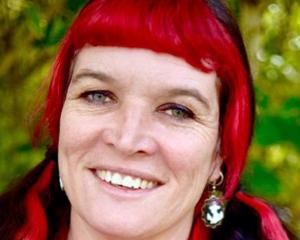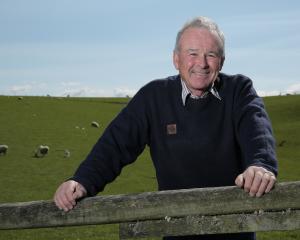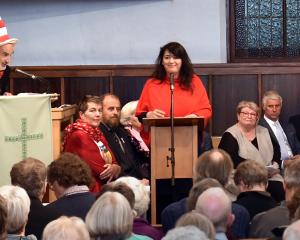Two Otago farming leaders, Ross Ewing, provincial president of Federated Farmers North Otago, and Steven Korteweg, acting president of Federated Farmers Otago, ask voters to consider the obligations of our elected representatives, and exercise their responsibility to vote carefully.
Every three years, voters in the Otago region get the chance to send our councils a loud message and 2010 is that year. Unless you have already returned them, in that pile of unopened letters may just be your council voting paper.
We all have until midday on October 9, in fact, to ensure our votes count and you could not imagine a more simple way of voting. Because it takes a few moments of considered thought, the $99 billion question is this: why do so many not vote when our 85 councils are worth so much?
In 2007, less than half of all eligible voters in the Otago region voted in the local elections. That ranges from a standout 63% in Waitaki to a paltry 36% in Clutha. It is hardly what you would define as being a knockout advertisement for democracy.
Yet compared with Auckland, where its eight current councils could only muster an average of 38%, it is one-up for the Highlanders.
But reversing our turnout figures, embarrassingly, tells us that, on average, more than half of Otago's voters could not be motivated to open, complete and return their ballot papers.
So if you are in need of a good reason to vote, then what about the mind-boggling sums our councillors control?
In 2009, Otago's six councils collected in rates enough money to fund Biosecurity New Zealand, leaving $19 million in change. Combined, these six councils control assets worth about $6.1 billion. This rams home the important message that our councils are not small beer.
Every aspiring candidate needs to understand the huge responsibility they are seeking election to perform.
For many farmers, rates are now among our biggest working expenses, but that is not just applicable to farmers. From Dunedin to Ranfurly, many retirees and home-owners on low or fixed incomes are in the same boat.
What we want, together with urban ratepayers, are councillors committed to sound and equitable policies. Anyone standing for election needs to understand that rates are not there to fund their dreams and schemes, but come from the hard work of property owners.
That is why Federated Farmers has created a manifesto to provide candidates and voters with a yardstick to assess policies, pledges and positions. While there is a rural element, the points are pretty much common to town and country.
Candidates need to know what's expected of them, the issues we farmers wish addressed, but, ultimately, if they have the personal wherewithal to do something about them.
While the system of funding local government is flawed, bold councils can take positive action that can make a real difference to the amount property owners pay in rates.
Good councillors must focus on the core job of their council, no matter how unfashionable it seems. Speaking to our colleagues in North Canterbury and Southland, the regional councils there have so far shown a lot of pragmatism.
Even before the September 4 disaster, Environment Canterbury's appointed commissioners took a scythe to the elected councils' large proposed rate increases.
Yet it is the Canterbury earthquake, which shows just how vital core local services are - roads, water and waste and the like. We doubt many residents in Avonside are demanding an arts centre, for example, over sewerage that works. It's too easy for eager councillors to overlook the absolute basics a council needs to provide.
But since it is spring, October is that once-in-a-three-year opportunity to spring-clean candidates and councillors. Some candidates and councillors seem to have a predisposition to what psychologists call the Stockholm syndrome, where captives (eg, candidates/councillors) see things totally through the eyes of their captors (eg, council officials).
Councillors are there to lead positively efficient organisations focused on deliverables over appearance, facts and not emotion. They also need rigorous independence of thought and discipline because the money they spend is not their money, but is ours.
So please read Federated Farmers' manifesto, which is on the internet. By voting, you will help ensure not just farmers have a real influence on October's outcome, but every citizen as well.









